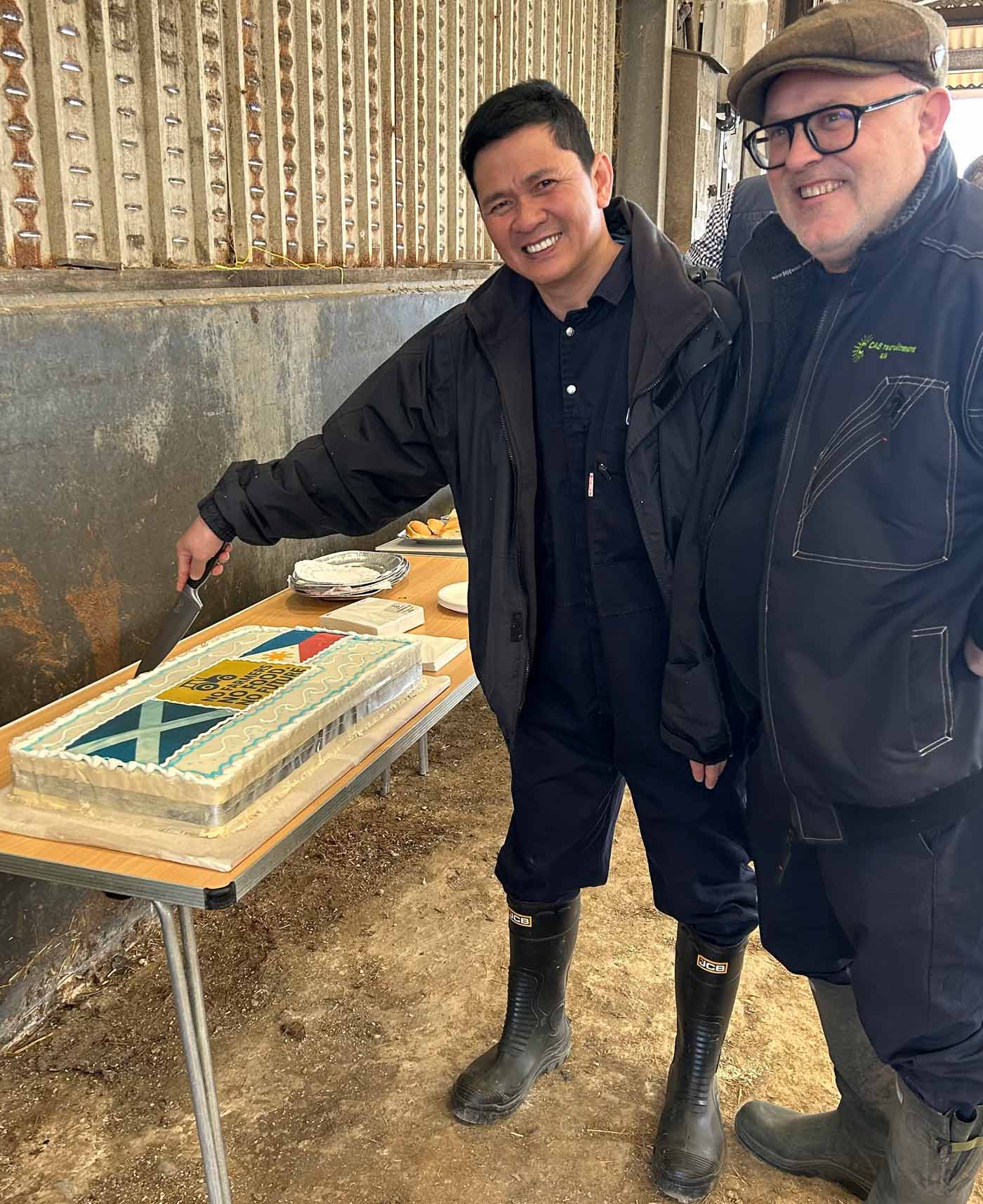
On 24th September, Rory and Gregor hosted an important lunch at Dourie. They welcomed a key journalist from one of the broadsheet newspapers to the farm (along with a host of local farmers, the local MP John Cooper and a number of farm workers from across Dumfries & Galloway) to hear about an issue that they are fighting at the moment.
Dourie has employed local people at The Dourie Farming Company for over 70 years and continue to do so, alongside also working with very many local contractors. However, with rural depopulation continuing, they aren't able to fill all vacancies with local folk.
They have therefore, over recent years, employed a number of Filipino workers. Unfortunately though, new UK Government rules mean that they are no longer able to recruit anybody else from the Philippines (or from anywhere else overseas) and they are fighting this because it will have a huge impact on the business if they lose these great employees.
A news release was issued to wider press and Rory and Gregor now need to wait until December when the Migration Advisory Committee meet again to discuss this issue. Meantime, they continue to spread the word and highlight the hugely positive impact that the team of Filipino staff at Dourie have on the business.
Scottish farmers are warning that the UK’s food security is under serious threat following a UK Government decision to remove Skilled Worker code 5111, effectively blocking farms from recruiting skilled overseas workers.
The change, introduced on 22 July 2025, has taken skilled farm roles off the Temporary Shortage List, leaving dairy, pig, poultry and horticulture producers struggling to fill vital jobs. In Dumfries & Galloway alone, more than 25 dairy farms depend on staff from the Philippines and other nations to keep operations running.
While skilled builders remain eligible to help ease the housing shortage, farmers argue that blocking skilled farm workers, as well as those working in food processing, risks creating a food shortage — with higher prices for consumers and greater reliance on imports.
“Our family has employed local people for over 70 years, and we will always look to local labour first. However, the reality is that with rural depopulation there are insufficient skilled or unskilled local people to fill the gap. This isn’t about uncontrolled migration — it’s about targeted, skilled people filling essential roles to keep food on our tables. The Government is naïve if it thinks this decision won’t have a huge negative effect on food security and food prices.”
“Farming isn’t bypassing local workers,” added Christie. “We’re filling unavoidable gaps. Without access to overseas skills, the entire food supply chain — from farm to processor to retailer — is at risk.”
Dourie Farming Company runs a 1,200-cow dairy herd and a 200-sow pig unit. Like many farm businesses, they rely on a mix of local and overseas talent to operate seven days a week and provide consistent food supply.
Alongside Rory, other organisations, such as NFU Scotland and the Scottish Association of Meat Wholesalers are calling for an immigration policy that enables skilled, willing workers across agriculture and food processing. In particular, Andy Backhouse of CAS Recruitment has been working tirelessly to address the issue UK wide. Rising salary thresholds and the removal of Skilled Worker code 5111 are already constraining recruitment, despite sustained efforts to recruit and train locally.
The Migration Advisory Committee (MAC) itself has previously acknowledged that “domestic supply is insufficient to meet demand in key sectors with sustained vacancy pressures” and that employers have “undertaken significant efforts to recruit locally and upskill, but persistent shortages remain.”
